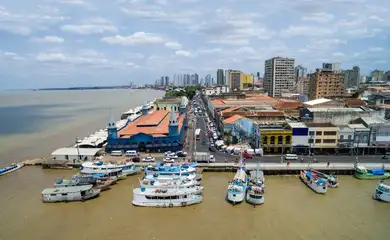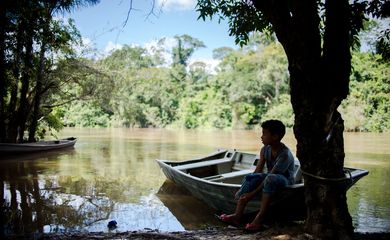Minister unveils new committee against environmental racism

What brings real change to people’s lives are well-constructed, adequately funded public policies, Brazil’s Racial Equality Minister Anielle Franco said Sunday (Aug. 6) during the assembly entitled Black Amazons: Environmental Racism, Traditional Peoples, and Communities, held in Belém, Pará state, as part of Amazon Dialogues.

“The policies we are building must be effective in order to make a difference in people’s lives,” she said.
On the development of policies for the people of the Amazon, Franco cited a pact inked with Environment Minister Marina Silva for the creation of the Committee for Monitoring the Black Amazon and Confronting Environmental Racism. With Pará officials, a technical cooperation deal was signed to address emergency measures, socio-environmental issues faced by the people in the Marajó archipelago, and a partnership with the state’s Secretariat of Racial Equality and Human Rights on related policies.
Figures from Brazil’s 2022 census show that 32.1 percent of residents of the Amazon are quilombolas—members of communities originally founded by people fleeing slavery.
“These are lives impacted by climate change, which causes high-risk disasters for those living in precarious housing in high-risk areas with no access to basic sanitation, living with the pollution of rivers and seas, with poverty and uncertainties about life tomorrow,” she added, as she recalled the role of local communities as agents in defense of socio-biodiversity.
She also advocated the demarcation of indigenous lands and the titling of quilombola territories. “That’s what preserving the Amazon means. That’s what saving the world means. There’s no more time to lose. We want to celebrate black women and young people in life, we want to save our territories, we want to defend our sacred while it’s still alive.”
Amazon Dialogues is an opportunity to build public policies for the most vulnerable, groups excluded from decision-making, the minister declared.
“It’s also a moment to ring the alarm. The Amazon shouldn’t only be seen as the lung of the world, but as the home of indigenous, black, quilombola, and terreiro people, as well as other traditional communities that experience inequalities and violence on a daily basis,” she said, adding that the fight against environmental racism should be a priority at the Amazon Summit, which will bring together heads of state from Amazon nations on August 8 and 9.



